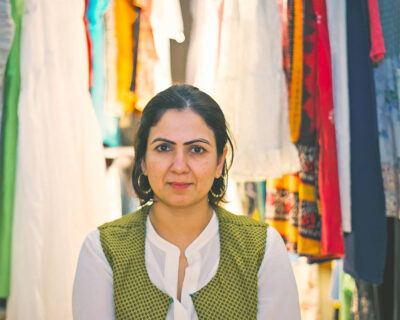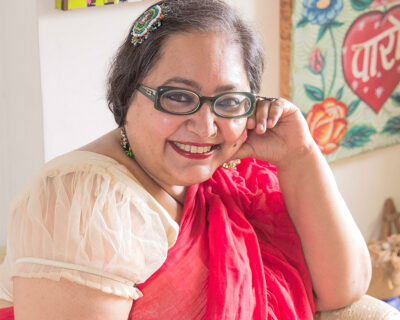Reclaiming Spaces, Sex and Other Pleasures
Wonderful, inspiring, motivating… these were just a few of the superlatives that the more than 90 students and faculty from the Women’s/Gender Studies Community shared after attending the International Women’s Day event, Reclaiming Spaces, Sex and Other Pleasures.
Our talk with artist-activists Jasmeen Patheja and Paromita Vohra was hosted by Cinema | Communications’ Dipti Gupta on behalf of Dawson’s Resist Violence Project and W/GS Coordinator Johanne Rabbat.
The generosity of both speakers was clear from the start, as they were joining us after a full day of IWD activities in India. This was revealed even more though the creativity, inclusivity, compassion, and joy they bring to their work and displayed to us so powerfully. Reflecting back, perhaps it was precisely this combination that all of us found so motivating.
Jasmeen Patheja created Blank Noise, a growing community of “Action Sheroes, Heroes, Theyroes,” in response to the silence surrounding street harassment. Over 17 years she has designed a wide range of interventions, across forms of media, to shift public consciousness and build ownership of the issue.

Her work rests on the power of collaborations and community to build testimonials of sexual violence, confront fear narratives and victim blaming, and initiate healing, listening and empathy. Her practice, as she puts it on her website, works towards building a right to imagine in a climate of fear and a right to be defenceless and vulnerable in response to the narratives of victim blaming.
These goals were illustrated beautifully in her discussion of Blank Noise’s project “Meet to Sleep,” which invites those who have been harmed in public spaces to create safe spaces where even naps become possible – the intervention being not only to claim public spaces, but also to rewrite the body’s learned experience of fear.
Filmmaker and author Paromita Vohra is the creative director of Agents of Ishq, a multimedia project seeking to positively represent sex, love and desire in India. As so perfectly stated on its instantly captivating website: “We believe in agency, pleasure, safety and mutual consent. But we don’t think ALL conversations about sex should be about abuse, rape, heartbreak, caution and fear. We feel other kinds of conversations – kind, loving, open, sex-is-normal ones – might even help some of the conversations about the tough stuff.”

Perhaps this last line explains Paromita’s success in exploring feminism, love and desire in spaces where patriarchy remains well entrenched. She asks us to think more about the specific strategies that will be most effective in achieving the goals we seek. Stressing that our focus needs to be on shifting the ideas and values of “those on the fence,” she suggests that we need to reframe our activism to focus on experiences not identities, calling for us to be both “loving and assertive” and to recognize the value of humour.
This perspective fits inherently into the theory and practice of nonviolence and its advocacy of a form of resistance that is at the same time disruptive and constructive. Jasmeen characterizes the role of art in social change as follows: “Art facilitates collective imagination not problem solving.” But perhaps on this last point, we will disagree. Building collective imagination is about delegitimizing the status quo and conceiving an alternative. This sounds a lot like problem solving to us.
Here are just a few of the comments left by students after the event:
“I think that living in North America, it is very easy to forget just how much further we still must go and seeing so many people note how important and inspiring this presentation was, I am reminded why these things are still talked about.” – Ryan Drudik
“To me, the most enlightening part of the session was hearing many students within our group who are women of colour speak about how they felt seen and heard during the discussion.” – Adrian Kahali
“(…) seeing other classmates and teachers participate in this activity was such a beautiful thing to witness even on zoom .” – Louidjina Cheraquit
“What struck me the most was that Jasmeen Patheja and Paromita Vohra were there, honestly. (…) I was sitting in the zoom meeting thinking “Wow… two people that actually do things and try to make the world a better place in significant ways on a zoom call for my college.” It is like when children get to meet firefighters on special days in elementary school. I felt a bit of that amazement the whole time.” – Jake Meredith
For those of you who missed this inspiring event, we encourage you to watch the video which has been posted on the Resist Violence website at http://resist-violence.com. And do take some time to check out the work of both Paromita Vohra and Jasmeen Patheja on their wonderful websites.
-Submitted by Pat Romano (Faculty, Humanities)



